Though it’s meant as a wholesome bit of holiday magic, Disney’s “One Magic Christmas” is much more disturbing nightmare fuel than innocent, festive fun.
There are three basic types of holiday films:
- The family film that sets out to prove that Santa is real
- The Hallmark-type romances that are all the same story with a revolving selection of high end housing, unlikely occupations, and really nice coats
- The “anti” Christmas movie that shits all over the holiday spirit while also reluctantly embracing it.
(Add a Christmas Carol twist to any of these as needed.)
These movies all rest comfortably in their own camps. Few would mistake a Bad Santa for a Christmas Prince, and some of us depend on that very distinction to survive the cloying sweetness of the season. Edgy outliers like Gremlins, Scrooged, and Krampus serve as much-needed palate cleansers to the sugary sincerity of Miracle on 34th Street and Rudolph.
But then, there is the film that tries to be like the heartwarming classics, but has more in common with the subversive ones — ending up a shambling, mismatched monster that begs to understand why it was created.
Look no further than your Disney+ subscription for the bracing tonic to your holiday cheer.
The year is 1985, and what a time to be alive. New Coke had come and gone, Michael Jordan was named Rookie of the Year, and it would have cost $2.75 a ticket to kick off the holiday season with Disney’s One Magic Christmas. The back of the box description explains that a family is on hard times at the holidays, and an angel arrives to help them get back their Christmas spirit. Sounds sweet, right? And coming from the House of Mouse, we’re practically guaranteed a hefty slice of quality entertainment.
Predictable, sentimental, just a harmless little holiday tale to warm our hearts. Even the poster takes place inside a snow globe. That is some wholesome shit right there.
To quote film critic David Kehr: “The screenwriter seems to have had It’s a Wonderful Life in mind…the results are closer to A Nightmare on Elm Street.”
(Author’s Note: The only way to truly communicate the insanity of this movie is to thoroughly spoil it, yet the best way to experience it is going in completely blind. So if you’re curious, I would advise digging up the movie and just taking the ride for yourself. But if you prefer your bad movies thoroughly riffed, then please follow me into the dark.)
Ginny (Mary Steenburgen)’s family is in dire straits.
She’s working overtime at the grocery store just to make ends meet. Her husband Jack was fired from his job some time ago and has yet to find a new one, since he’s preoccupied with his pipe dream of opening a specialty bicycle shop. The two children, Abbie and Cal, are still small and sweet and full of hope, if only because they’re too young to understand the connection between the holidays and financial hardship. By the New Year, the family will be evicted from the company housing they’re currently living in.
Needless to say, there isn’t much of anything leftover for Christmas, let alone joy, and Ginny is just trying to make it through the holiday season alive.
To rub some more salt in that wound, her painful awareness of their desperate situation seems to be justification for anyone and everyone, including her own clueless husband, to accuse her of not having any Christmas spirit.
Enter our angel, Gideon, both the highlight of the film and its most baffling feature.
First off, he doesn’t look like what you picture when you hear “Christmas angel.” His wardrobe consists of a trench coat and a wide-brimmed hat, which is terrifying all on its own. When he isn’t eavesdropping on Ginny’s daily hardships or suddenly appearing to ask her young daughter penetrating personal questions, he’s wailing on his harmonica from the top of a craggy old tree and talking to the moon.
The role of a benign holy messenger with creepy tendencies could only be pulled off by an actor with a warm, comforting presence, in order to reassure the audience that despite appearances, he is undoubtedly a force for good. So naturally, they went with America’s sweetheart, Harry Dean Stanton.
Everything about Gideon uses filmic language streamlined to strike fear in the audience — from the spooky music that plays every time he appears, to the way he is framed looming in a crowd or trudging through a blizzard, and even his ability to warp himself anywhere, including a six-year-old girl’s bedroom in the middle of the night — yet is played off as if it’s supposed to be sweet and charming.
Stanton does his best to convince us of this, speaking in a gentle voice and contorting his haunted face into the kindest expressions he can muster.
Unfortunately, his great acting only makes the words coming out of his mouth that much more chilling.
Consider this exchange between Gideon and little Abbie, and keep in mind that this takes place on a snowy sidewalk in the dead of night with no one else around, between a grown man in a trench coat and a little girl in her jammies.
Gideon: Can you keep a secret?
Abbie: Yeah.
Gideon: Well, uh, I’m an angel. A Christmas angel.
Abbie: Oh, no, you’re not, ’cause my dad told me you can’t see angels. They’re invisible.
Gideon: Well, they’re invisible sometimes, but sometimes they have to show up.
Abbie: So, what’s your name then?
Gideon: Gideon.
Abbie: Gideon? Was you a good person that died?
Gideon: Good person? Well, I was a cow hand… out, out west. And one Christmas, a long, long time ago, I was riding along the Snake River, and I heard this little… kid, uh, yelling to somebody, and, uh, so I jumped into the river to save him. Well, I saved him, all right, but I got myself drowned. ‘Cause I didn’t know how to swim. And, um, after that they, they made me a Christmas angel.
There are a few things that should bother you about this conversation (not the least of which being how much it sounds like he’s making it up as he goes along), too many to get into here since we haven’t even gotten to the crazy shit yet. I’ll just ask you read it again, and really savor that chill creeping up your spine. That feeling will become more and more familiar as we press forward.
Let’s turn our attention back to Ginny and the worst Christmas ever.
With all this misery and strife, one would hope that she would at least have someone to lean on, a partner who would be there with her in the struggle and do everything he could to make things easier for her. Unfortunately, Ginny gets Jack, who is perhaps the most infuriating character ever put to film.
Jack is directly responsible for their entire situation by losing his job (for undisclosed reasons, but most likely for being a dumb idiot), and he is perfectly aware of just how much trouble they are in. AND YET. He is so confident in his idea of a bike shop that he chooses to spend six months investing his time into that instead of looking for a real job.
Up to his eyeballs in Christmas spirit, he is less concerned with his family having a roof over their heads than he is with finishing a custom bike for the poor neighbor girl down the street, or putting his own money into lighting the town Christmas tree. Anytime Ginny brings up their desperate situation, he just smiles and shrugs and nonchalantly mentions the $5000 in savings — virtually all the money they have left. On top of everything, he has the nerve to tease his wife about working on Christmas Eve. If anyone deserved to be out on the streets, it’s Jack.
During one of several one-sided conversations about money, where Ginny once again explains that opening a niche business in a small town is the worst idea anyone could have, he storms out to take a walk. She follows him to make amends, but he’s not having it and leaves her out in the cold as all Christmas lights in the neighborhood turn off one by one. This visual is significant later, so put a pin in it.
Meanwhile, on the outskirts of Ginny’s misery is another struggling parent having a rough time getting through the holidays.
We meet this unnamed man causing a scene in Ginny’s checkout aisle, and he’s memorable if only for being incredibly rude and referring to Doritos as “Dorita chips.” So Mr. Dorita Chips is a single father who is seemingly living out of his car with his young son, and he is seen throughout the film with a look of increasing bitterness and desperation on his face. On Christmas Eve, he attempts to sell his car to the gas station attendant while Ginny watches silently from afar. When that doesn’t work, he sees no other option but to rob the bank.
As Mr. Dorita Chips goes inside, Jack pulls up with the kids in tow and a freshly cut tree tied to the car roof. Never missing an opportunity to further ruin his wife’s life, Jack goes into the bank to withdraw the money she expressly forbid him to touch in order to buy Christmas presents. He’s such a clueless asshole, he can’t even bother to park legally. He goes whistling into the bank just in time for the stick up, and shenanigans ensue.
When I say shenanigans, I mean dire dreadful terror. To describe the events that follow is basically a transcript of a wife and mother’s worst nightmare. After getting fired for walking out on her job, Ginny witnesses her husband shot dead by Mr. Dorita Chips, followed by the horrifying realization that the shooter has taken off with the car holding her two children. She and the cops catch up with them, just in time to watch the car swerve around the roadblock and go careening off a bridge into the freezing river below.
Now, at this point, I know what you’re thinking: “Wait, wait…what?”
It’s absolutely baffling that this turn of events takes place in a holiday family film at all, let alone one from Disney.
Of course, because it is a Disney holiday film, this tragic chain of events is instantly reversed by Gideon, who fishes the kids out of the river without even a drop of water on their coats. The kids toddle home to their grieving mother to show her Christmas isn’t completely ruined. However, Gideon’s magic only goes so far, as Jack is still lying dead in a morgue somewhere with three bullets to the chest (not to mention, Mr. Dorita Chips is presumably still floating in a stolen car at the bottom of an icy river).
Imagine trying to explain to the precious moppets who unknowingly cheated death through the power of Christmas magic that their father wasn’t so lucky. Well, she does try, and it’s heartbreaking to watch. Gideon comes to Abbie again and explains that while he can’t bring her dad back, he knows someone who can.
Off we fly to the North Pole, where the most German Santa Claus you’ve ever seen is waiting to save the plot.
He leads Abbie through his workshop, where (get this) instead of elves making toys, it’s hundreds of people from different places and eras, all dead and serving their afterlife employed as Santa’s helpers. It’s another weird detail that could be touching if it wasn’t so ghoulish. Even eerier is the idea that somewhere on the cutting room floor must have been a scene where Abbie sees her dead father happily working on Santa’s bicycle assembly line.
Santa explains to Abbie that even though her dad is dead and her family is broke and everything back home has gone to complete shit, the worst part of all this is that her mom is a buzzkill. That, in fact, this whole mess could be fixed if Ginny would just lighten up and gets a little goddamned Christmas spirit.
Apparently, Santa works on trade-based miracles, and the only way Dad can come back to life involves a convoluted scheme wherein Abbie must take the letter Ginny wrote to Santa as a child, bring it back to her mother, which would prove to Ginny that Santa is real, something something, Dad is okay and Christmas is saved.
And that’s exactly what happens.
Abbie is whisked back home, spouting stories of Santa and angels and the dead in eternal servitude to the children of the world. Ginny finds the letter, and her heart grows three sizes. She bumps into Gideon and thanks him, though she’s not really sure what for. Then, magically, all the Christmas lights on the street begin to switch on, when who should be moseying up the road but Jack, just as alive as he was the night before, still sulking about his bike shop and a little put off that his wife is so happy to see him.
Ginny is thrilled she gets her husband and children back after seemingly losing everything, and this prompts her to turn over a new leaf as she gets another chance at Christmas Eve. She refuses to go into work in order to spend the day with her family, which her boss, of course, easily obliges without firing her. She sees Mr. Dorita Chips failing to sell his car and gives him $50 to give his son a nice Christmas (and prevent him from murdering her husband and children).
She goes with her family to watch the big tree lighting ceremony, and she gladly writes a check to clean out their bank account so Jack can chase his ill-advised dreams. The last shot of the movie is Ginny walking in on Santa as he visits the house, and the two exchange a tear-filled “Merry Christmas” as the film fades to credits. All is right with the world.
I pity the poor families who have accidentally endured this tragic tale these past thirty-odd Christmases (even more so the ones just now discovering it on Disney+).
If you weren’t really paying attention or missed a few key scenes, One Magic Christmas could pass for another forgettable holiday story. But in reality, the film’s depressing spirit lurks in every frame.
The town is cast in a dreary winter pallor that’s about as cheerful as dirty snow slush that collects on the side of the road. Nearly every shot is shrouded in shadow or fog or snow, making everything appear wet and grey. Even Santa himself has a dull rust-colored suit and a mostly brown workshop. The few Christmas lights that are scattered around look like they’re ready to burn out at any moment. Everything is so grounded in bleak realism that any potential for Christmas wonder is instantly sucked away.
But the heart of this sad sack Christmas lies with Ginny, and how she deserves none of this cosmic nonsense. Ginny’s problem is that she’s just a real person having a bum year, but she is suddenly thrust inside a cheery Christmas film and expected to act accordingly. Everyone around her is more concerned with putting up the tree and giving the perfect gift than the fact that they’ll be on the street come New Year’s.
Most troubling is the ending, with its air of “we hope you learned your lesson,” since Ginny hasn’t done anything remotely worthy of such punishment.
The worst thing she does is get annoyed that her kids still believe in Santa, only because it puts pressure on her to deliver on Christmas morning (since, again, she’s the only one making any money). It’s as if the three spirits from A Christmas Carol visited their wrath upon Mrs. Cratchit, simply because she knew better than to count on Mr. Scrooge or Christmas magic to put food on the table.
The most disturbing thing about this movie is the fact that this whole series of events was just an elaborate ruse to manipulate a poor woman’s emotions into a facsimile of happiness. It’s a demonstration of “see how good you really have it” a la It’s a Wonderful Life, but with a horrifying, hostage negotiation of a twist.
Santa orchestrated the death of two men (and the teased death of two children) just so some lady making minimum wage can learn to loosen up at the holidays. Was it really worth it? What did we really learn here?
Worst of all is that poor Ginny has to live with this memory for the rest of her life, knowing that she came this close to losing everything just for not being cheery enough.
She’ll go to her grave with the ever-present fear that Santa and his trench coat angels are always watching, ready to snatch it all away if you don’t check your attitude.
So this Christmas, you’d better watch out, you’d better not cry, because Santa does not give a shit about your working class problems. Crank that Mariah Carey a little louder, have another drink, and try to forget about the problems waiting for you in January.
Everything may be falling apart outside, but it’s the holidays, dammit, and we’re gonna get merry even if it kills us.


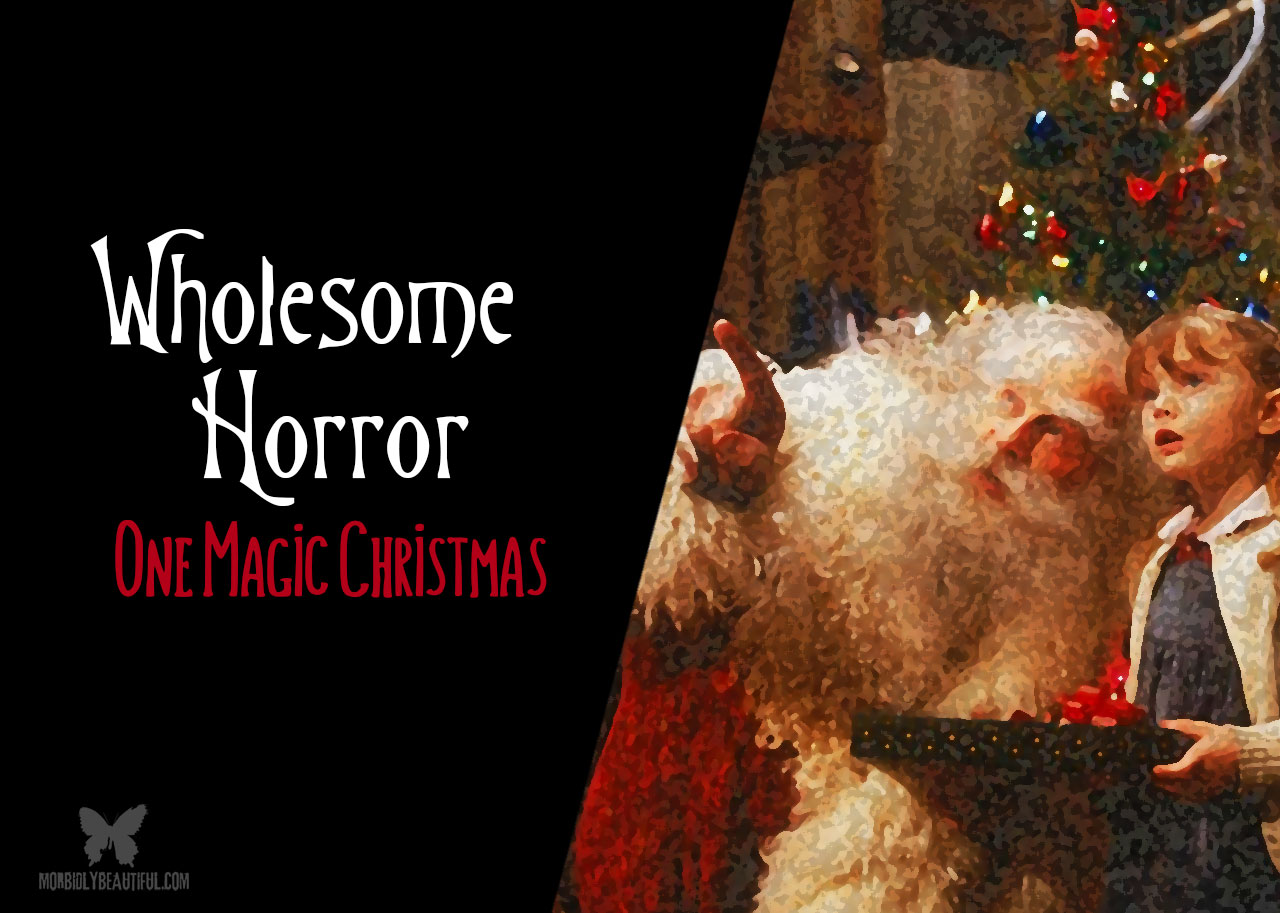
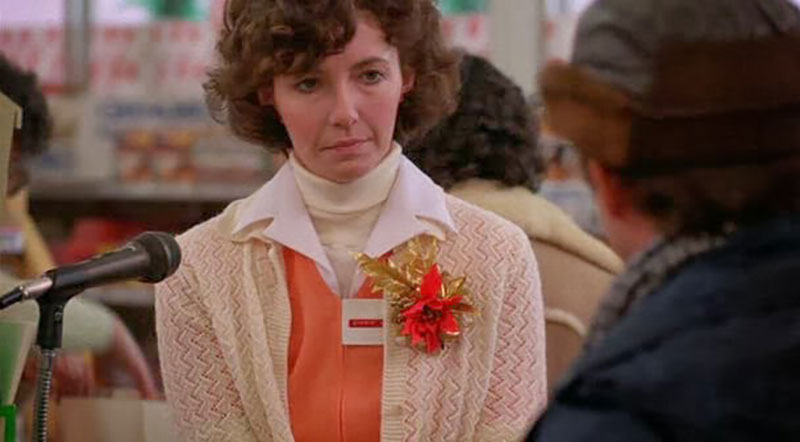
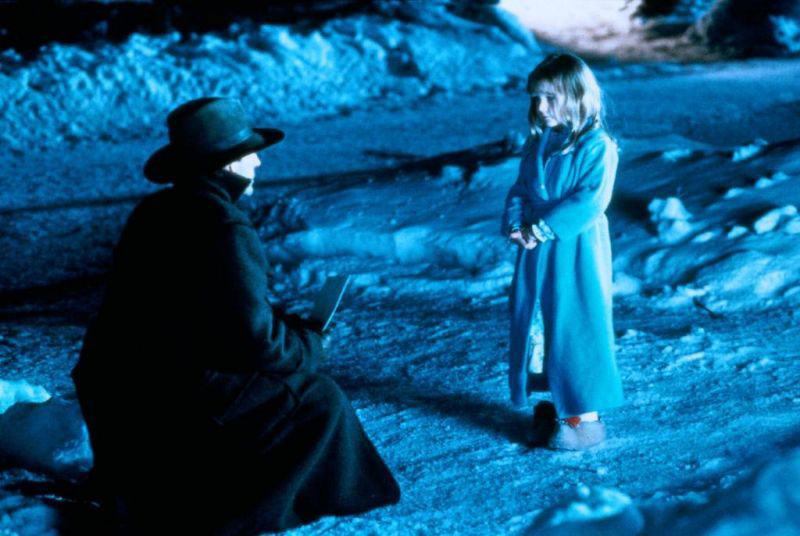
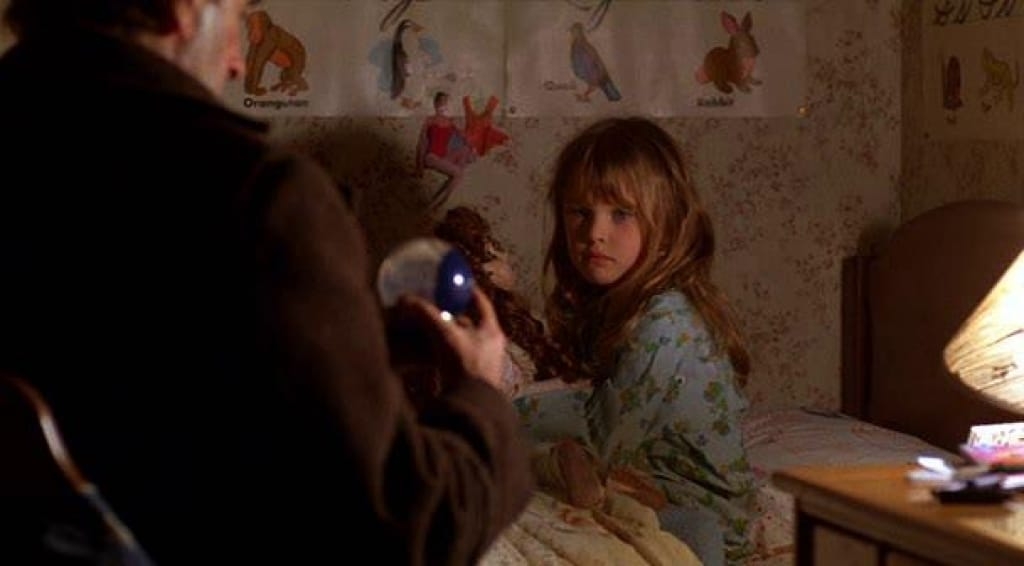
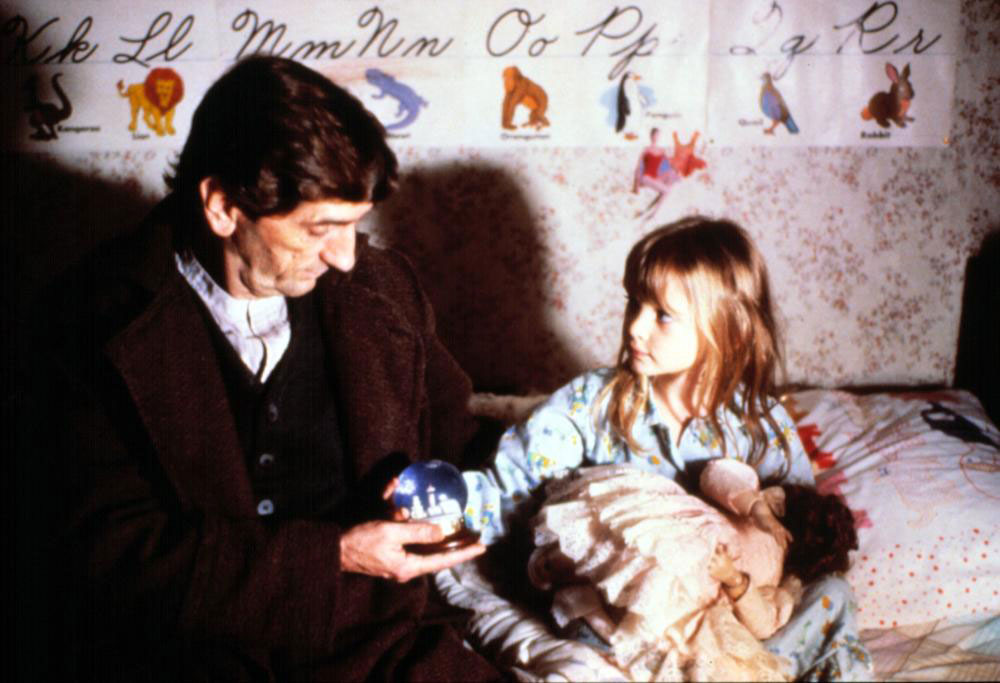
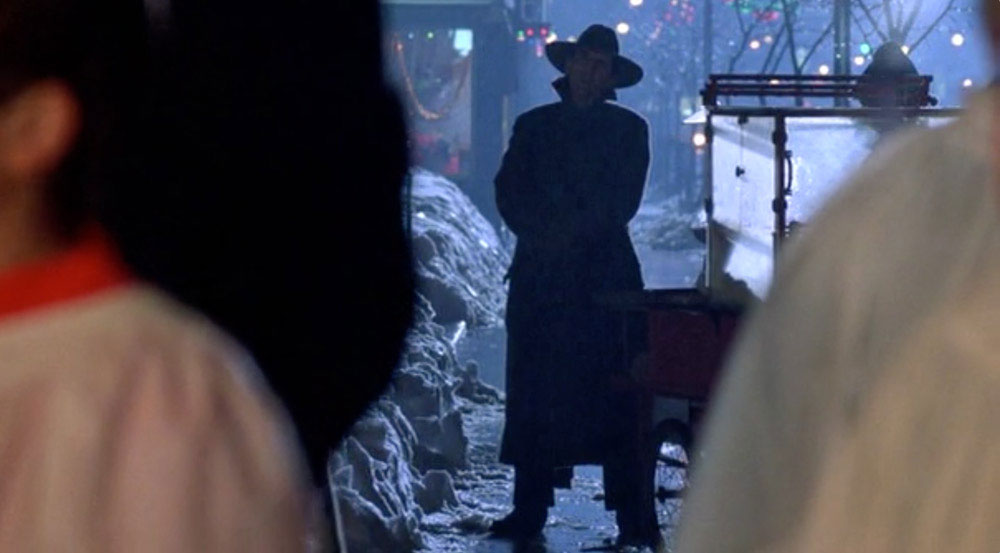
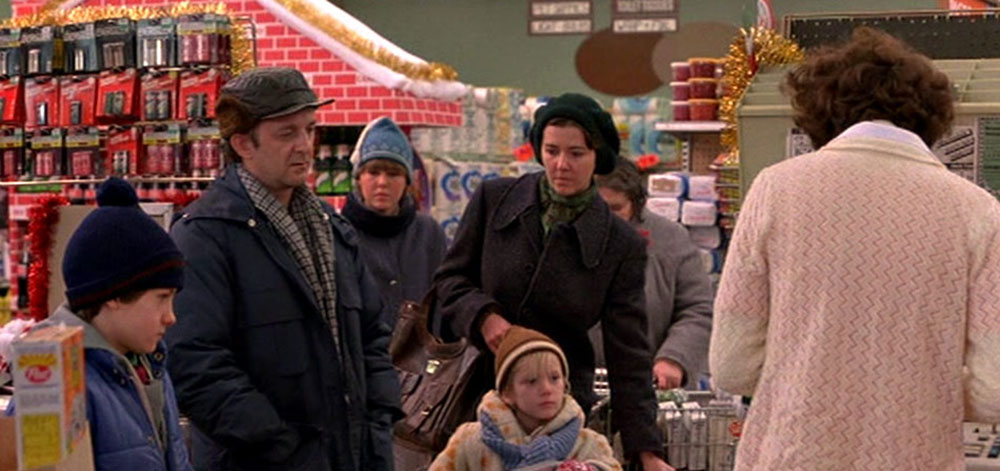
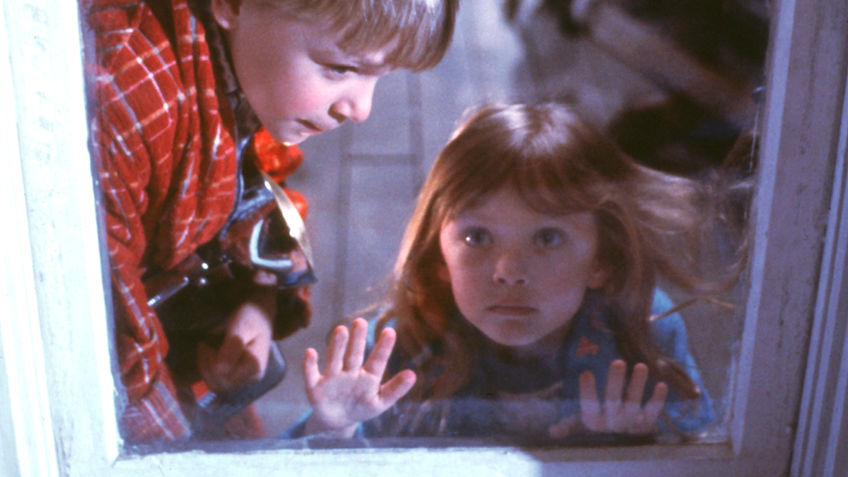
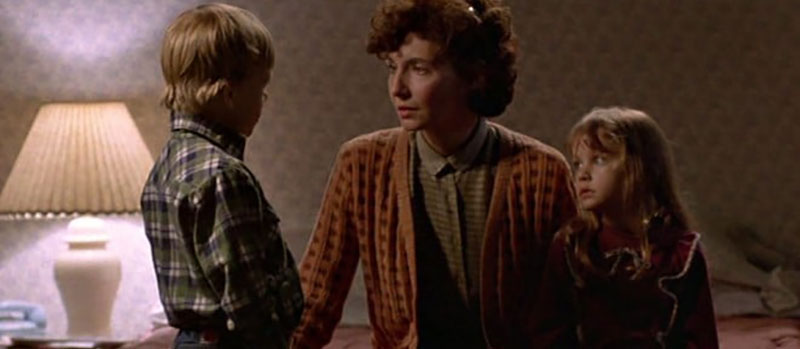
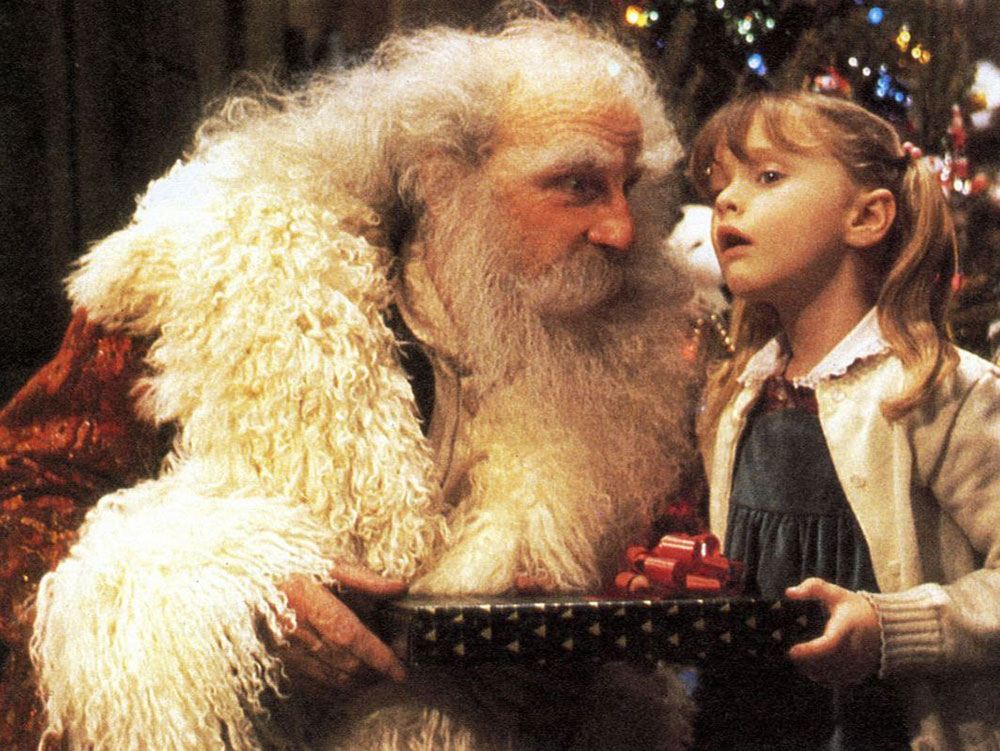
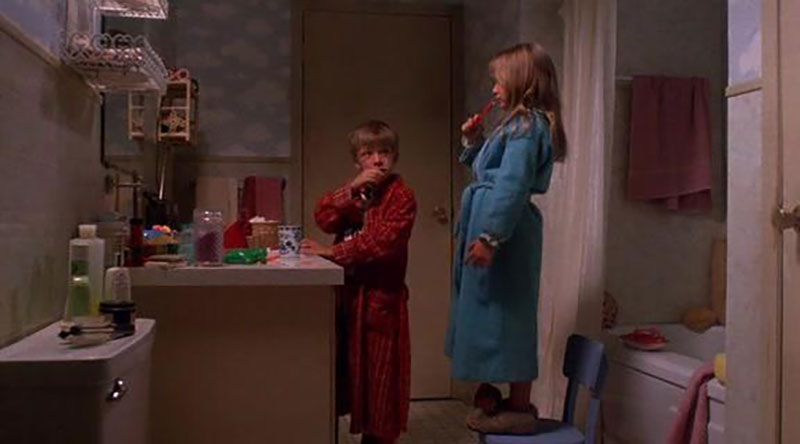


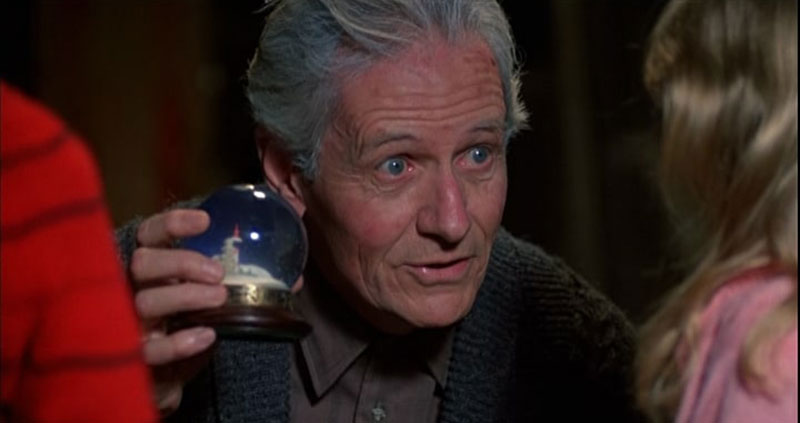
















3 Comments
3 Records
Julie S. wrote:
I’m so glad I wasn’t the only one TRAUMATIZED by this WHOLESOME HORROR film!
maggiesmith wrote:
It’s my favorite Christmas movie, aside from Alistair Sim in the Christmas Carol.